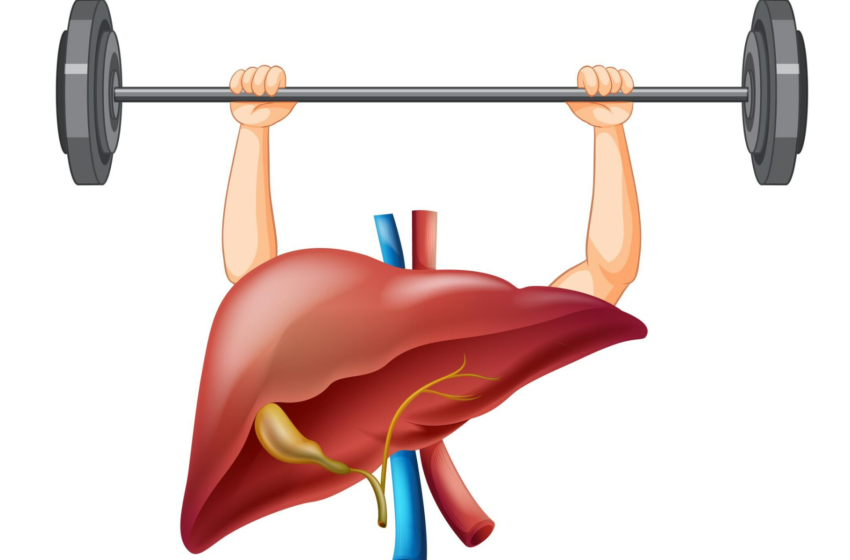10 Foods to Protect Your Liver

Your liver is one of the most important organs in your body. It performs over 500 vital functions, including filtering toxins from the blood, metabolizing nutrients, and producing proteins essential for blood clotting (1).
An unhealthy diet high in processed foods and calories can overwork and damage your liver over time. Fortunately, eating the right foods can keep your liver healthy and working efficiently.
Here are 10 of the best foods to eat to protect your liver.
1. Coffee
Coffee is one of the best beverages you can drink to promote liver health.
Studies have shown that drinking coffee protects the liver from disease, even in those who already have liver dysfunction. For instance, a large review found that each additional cup of coffee consumed per day reduced the risk of liver cancer by 7% (2).
Coffee also reduces liver inflammation and increases antioxidant levels in the liver, all while protecting against cirrhosis, or permanent liver damage (3, 4).
Aim to drink 2–3 cups of coffee per day to maximize these benefits. Just be careful not to overdo it, as more than 4 cups per day may harm your liver rather than help it (5).
2. Grapefruit
Grapefruit contains antioxidants that naturally protect the liver. The two main antioxidants found in grapefruit are naringenin and naringin.
Several animal studies have found that both help protect the liver from injury by reducing inflammation and preventing oxidative stress (6, 7).
Try cutting grapefruit into wedges and sprinkling a bit of sea salt on top. The salt helps balance the bitter taste of grapefruit, making it easier to enjoy this tangy, liver-protective fruit.
3. Blueberries and Cranberries
Blueberries and cranberries both contain anthocyanins, antioxidant compounds that give berries their vibrant color (8).
They have also been shown to reduce inflammation, increase antioxidant levels, and fight oxidative stress within the liver (9, 10).
Pair berries with yogurt, oatmeal, salads, or smoothies and aim for a cup (141 grams) two or three times per week to reap the benefits.
4. Grapes
Grapes, especially red and purple varieties, contain a number of beneficial plant compounds credited with protecting the liver.
The antioxidants resveratrol and quercetin found in grapes have been shown to reduce inflammation, protect liver cells, and increase antioxidant levels in animal studies (11, 12).
Grapes make a tasty, convenient snack all on their own. For extra liver protection, you can also pair them with cheese, nuts, or seeds.
5. Beetroot Juice
Beetroot juice is a source of nitrates and antioxidants called betalains, which may benefit liver health.
In one study, giving rats beetroot juice for six weeks decreased oxidative damage and inflammation in the liver, as well as increased natural detoxification enzymes (13).
Another study in 19 women found that consuming 17 ounces (500 ml) of beetroot juice daily increased antioxidant and detoxification enzyme levels in the liver (14).
Mix beetroot juice with a sprinkle of ginger or lemon for an easy, refreshing liver tonic.
6. Turmeric
Turmeric contains a compound called curcumin, which gives turmeric its vibrant, golden hue. Curcumin has been widely studied for its potent anti-inflammatory properties (15).
Research suggests that turmeric can protect the liver against damage and improve liver function. For instance, one study in mice found curcumin supplements reversed alcohol-induced liver damage (16).
Another study in rats showed that curcumin helped restore normal liver enzyme levels that had been elevated by a high-fat diet (17).
You can add turmeric to savory dishes like curries, stews, or soups. Pairing turmeric with black pepper may enhance curcumin absorption (18).
7. Green Tea
Green tea is rich in catechins, natural plant compounds with powerful antioxidant properties (19).
Several studies indicate catechins help liver function by reducing inflammation, oxidative stress, and fat accumulation in the liver (20, 21).
Drinking more green tea is a smart way to add plant antioxidants to your diet and protect your liver in the process.
8. Cruciferous Vegetables
Cruciferous vegetables like broccoli, Brussels sprouts, and cabbage contain sulfur-containing compounds called glucosinolates.
These compounds form protective compounds in the body that benefit liver function (22).
One study in men with fatty liver found that a higher intake of cruciferous vegetables reduced liver fat content by up to 20% over 12 weeks (23).
Aim for 1–2 cups (70–150 grams) of cruciferous vegetables two or three times per week to optimize liver health.
9. Nuts
Nuts are high in beneficial plant compounds and vitamin E, a powerful antioxidant that helps protect the liver (24).
One large observational study found that a higher intake of nuts was associated with improved liver enzyme levels (25).
Another study showed that eating nuts was linked to a lower risk of non-alcoholic fatty liver disease (26).
Try topping oatmeal, yogurt, salads, or pasta dishes with your favorite nuts. An ounce (28 grams) 2–5 times per week is a good goal.
10. Olive Oil
Olive oil is considered a healthy fat because of its high concentration of monounsaturated fats, which are easily digested and absorbed by the body.
Research shows that monounsaturated fats help protect the liver by regulating cholesterol levels and increasing bile excretion (27).
The antioxidants in olive oil, like vitamin E, also work to optimize liver health.
Use olive oil in salad dressings, sauces, and marinades, or pair it with meals like fish or poultry.
The Bottom Line
Your liver is vital to your overall health. Fortunately, following an antioxidant-rich diet full of whole, unprocessed foods can keep your liver healthy and working efficiently.
Focus on incorporating foods like coffee, berries, cruciferous vegetables, nuts, and olive oil to get the liver benefits that these nutritional powerhouses provide.


